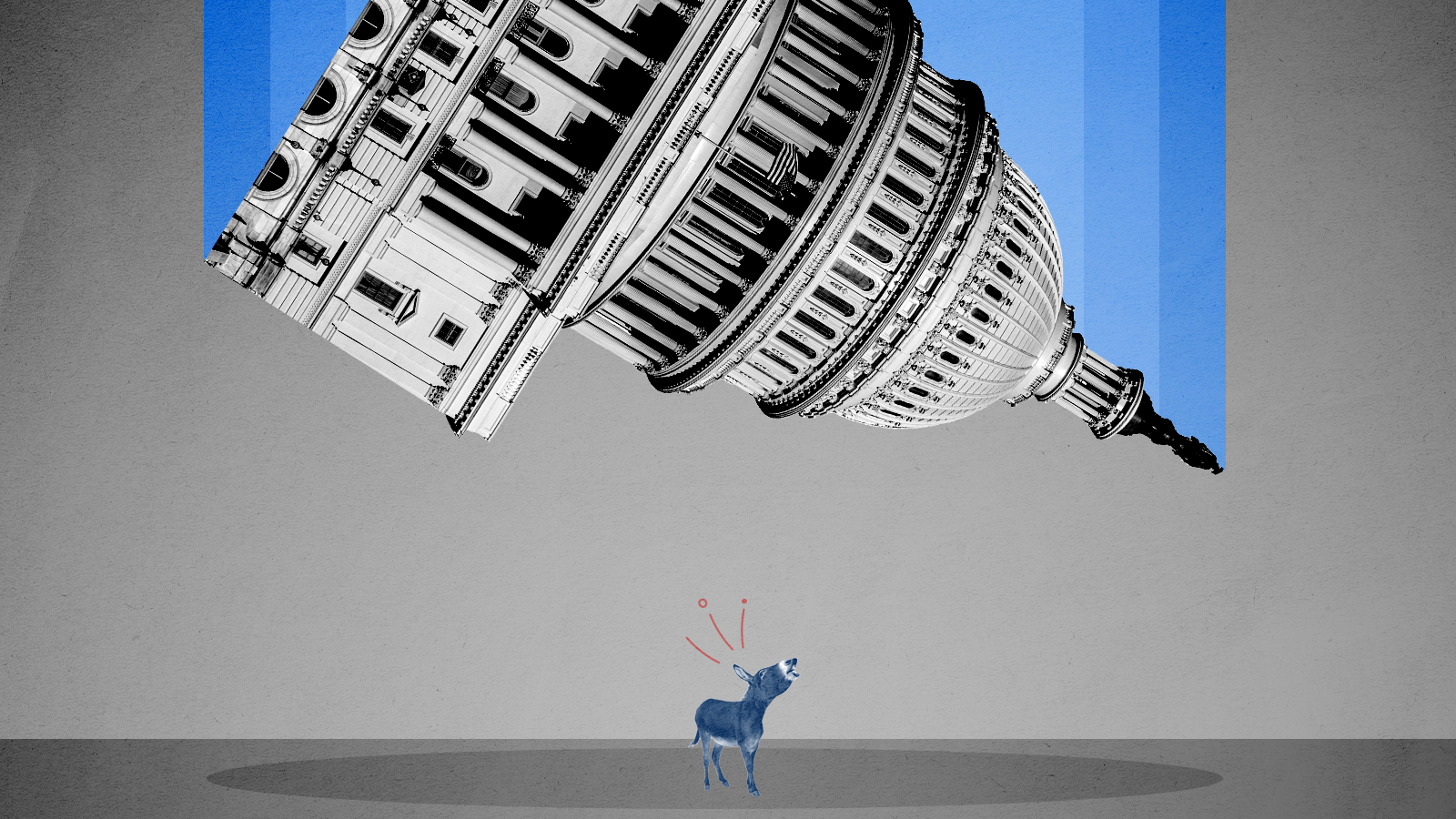The 2 hard truths Democrats need to share with their voters


A free daily email with the biggest news stories of the day – and the best features from TheWeek.com
You are now subscribed
Your newsletter sign-up was successful
With Democrats confronting the imminent failure in Congress of their bills to expand social spending and voting rights, recriminations have already begun. As Politico reports, progressives are especially preoccupied with how to talk about their defeats with their presumably angry and demoralized constituents.
Not that I imagine it will happen, but I think the Democratic Party would benefit from setting aside spin for a change and telling its voters two hard but essential truths about American political reality.
The first truth is that, according to recent data from Gallup, only 25 percent of the country self-identifies as "liberal," with "moderate" and "conservative" pulling in more than a third each (37 percent for the former and 36 percent for the latter). That's more than in the past (thirty years ago, just 17 percent of the country described themselves as "liberal"), but it's nowhere near enough to ram through a progressive agenda in Congress.
The Week
Escape your echo chamber. Get the facts behind the news, plus analysis from multiple perspectives.

Sign up for The Week's Free Newsletters
From our morning news briefing to a weekly Good News Newsletter, get the best of The Week delivered directly to your inbox.
From our morning news briefing to a weekly Good News Newsletter, get the best of The Week delivered directly to your inbox.
This gets obscured by the fact that within the Democratic Party, the left has made enormous strides over the past few decades. Back in 1994, just 25 percent of Democrats considered themselves liberal. Today that number is 50 percent. Over that same timespan, self-identified moderates have fallen from 48 percent of the party to 37 percent, while conservatives have gone from 25 percent to 12 percent. It's understandable that the left would want to translate its growing numbers into political power, but with the other half of the party less inclined to support a progressive agenda, the obstacles are greater than a couple of recalcitrant senators.
If Democrats probably won't convey the first hard truth to their voters, they're even less likely to share the second truth, which is that their rhetoric on voting rights has been wildly exaggerated and even outrightly demagogic. Yes, Republican efforts to make it marginally more arduous to vote are morally vile. But they've been at it for many years, and there's no evidence that it has had a measurable effect on rates of voting.
So by all means, hit the GOP for making voting somewhat more difficult. But calling such efforts "the end of American democracy" or "Jim Crow 2.0" are risible and civically irresponsible — roughly equivalent to conservatives accusing Barack Obama of being a socialist during debate over passage of the Affordable Care Act. Such shrieking hyperbole might be good for fundraising and keeping activists maximally engaged on social media, but both do serious damage to our politics by transforming the parties into conduits for transparent and corrosive BS.
Then there's the fact that, as the Democrats are currently learning, there's little evidence the five-alarm rhetoric gets the job done. Hopefully next time they will adjust their expectations to fit American political reality.
A free daily email with the biggest news stories of the day – and the best features from TheWeek.com
Damon Linker is a senior correspondent at TheWeek.com. He is also a former contributing editor at The New Republic and the author of The Theocons and The Religious Test.
-
 The ‘ravenous’ demand for Cornish minerals
The ‘ravenous’ demand for Cornish mineralsUnder the Radar Growing need for critical minerals to power tech has intensified ‘appetite’ for lithium, which could be a ‘huge boon’ for local economy
-
 Why are election experts taking Trump’s midterm threats seriously?
Why are election experts taking Trump’s midterm threats seriously?IN THE SPOTLIGHT As the president muses about polling place deployments and a centralized electoral system aimed at one-party control, lawmakers are taking this administration at its word
-
 ‘Restaurateurs have become millionaires’
‘Restaurateurs have become millionaires’Instant Opinion Opinion, comment and editorials of the day
-
 Epstein files topple law CEO, roil UK government
Epstein files topple law CEO, roil UK governmentSpeed Read Peter Mandelson, Britain’s former ambassador to the US, is caught up in the scandal
-
 Iran and US prepare to meet after skirmishes
Iran and US prepare to meet after skirmishesSpeed Read The incident comes amid heightened tensions in the Middle East
-
 Israel retrieves final hostage’s body from Gaza
Israel retrieves final hostage’s body from GazaSpeed Read The 24-year-old police officer was killed during the initial Hamas attack
-
 China’s Xi targets top general in growing purge
China’s Xi targets top general in growing purgeSpeed Read Zhang Youxia is being investigated over ‘grave violations’ of the law
-
 Panama and Canada are negotiating over a crucial copper mine
Panama and Canada are negotiating over a crucial copper mineIn the Spotlight Panama is set to make a final decision on the mine this summer
-
 Why Greenland’s natural resources are nearly impossible to mine
Why Greenland’s natural resources are nearly impossible to mineThe Explainer The country’s natural landscape makes the task extremely difficult
-
 Iran cuts internet as protests escalate
Iran cuts internet as protests escalateSpeed Reada Government buildings across the country have been set on fire
-
 US nabs ‘shadow’ tanker claimed by Russia
US nabs ‘shadow’ tanker claimed by RussiaSpeed Read The ship was one of two vessels seized by the US military
